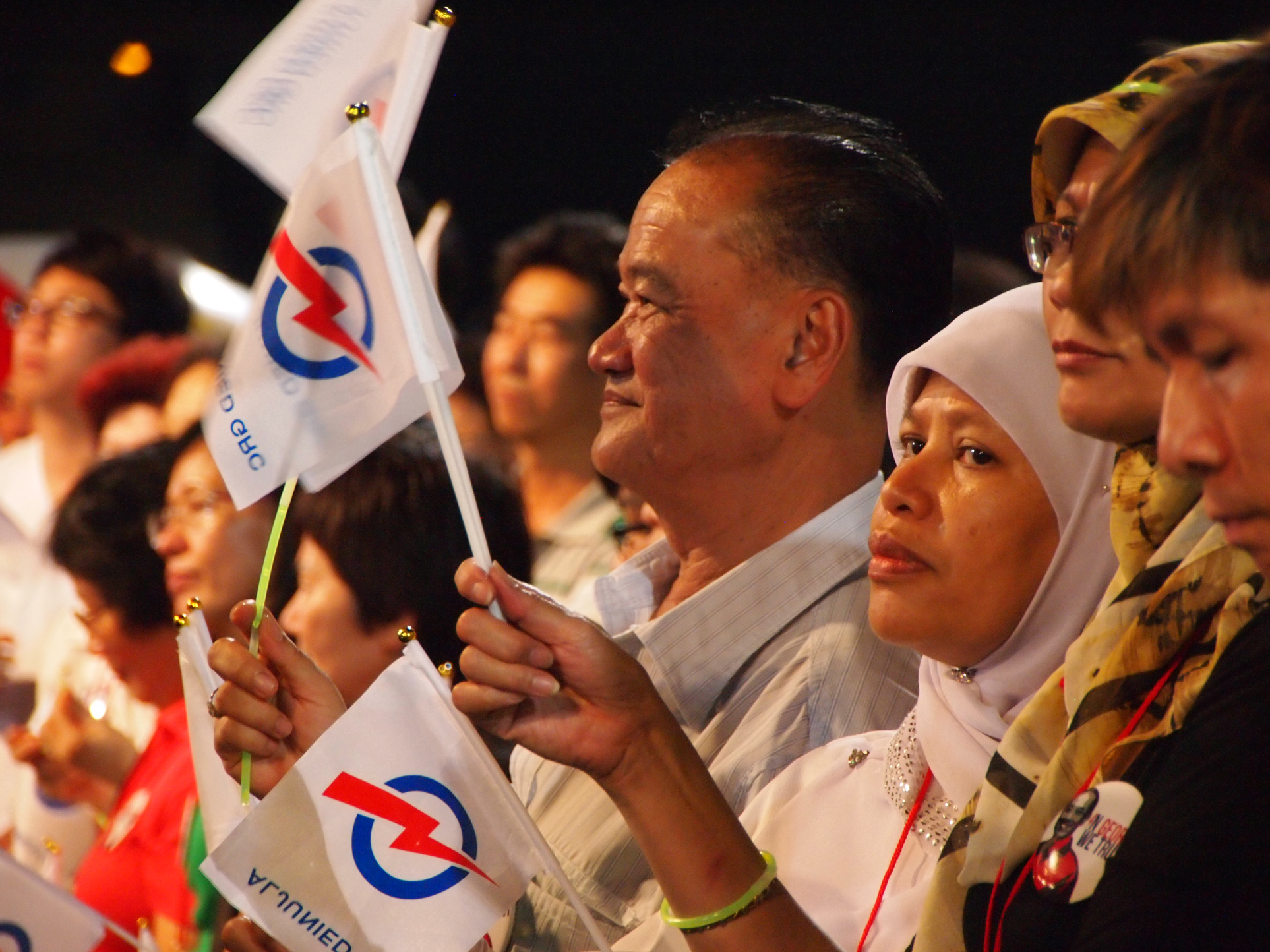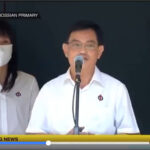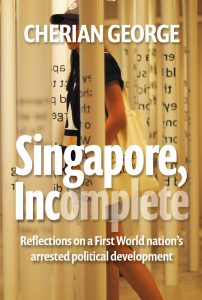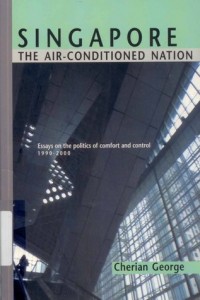CAN IT REMAKE ITSELF?
The obstacles to internal reform are formidable, but citizens shouldn’t discount the possibility entirely.
Picture a PAP government that lets an independent election commission draw constituency boundaries, introduces freedom of information laws and fights for equality even when it’s unpopular. This would be a PAP that committed itself to democratic processes, open government and individual rights.
In my previous blog, I said that this was the kind of PAP that I could believe in and get behind. I can’t say if such changes would arrest the growth of the opposition – probably not, since the opposition’s Parliamentary presence has been unnaturally low and is bound to rise no matter how well the government performs. But such reforms could enhance the PAP’s moral legitimacy and reduce the kneejerk negativity that currently greets its every move.
Creating a checklist for change was mainly a personal exercise to help me avoid two pitfalls as a citizen. First: naivety, which would make me satisfied with superficial changes. Second: cynicism, which would prevent me from recognising and supporting meaningful improvements.
Of course, there are fellow citizens whose visions of a better Singapore include no room for the PAP in any shape or form – and, at the other ideological extreme, people who want the PAP to stay exactly the way it is. I can only promise them greater respect for their opinions than they are likely to give me for mine (since, ironically, intolerance of differing views is a shared tendency of both the pro-PAP and anti-PAP extremes of the political spectrum – some Facebook denizens were so outraged that I could contemplate the possibility of a reformed PAP that they labelled me “closet PAP” and “whiter than white”, which I assume were meant as insults).
Sources of radical change
More thought-provoking were comments from readers who agreed with my sentiments but doubted that the PAP could ever remake itself so radically. Said one: “I am inclined to adopt your checklist as my own as it resonates well, but where we are not aligned is your optimism on the PAP’s ability and will to cross the chasm.”
I’m not optimistic either. Nevertheless, if we want radical change in the medium term – say, the next 10 years – the odds of it coming from a non-PAP government are even lower than it emanating from within the PAP.
Recent history offers some hints of where democratic change might come from. Looking at societies as different as the Soviet Union, Poland, the Philippines, South Africa, Indonesia, Egypt and Myanmar, what’s clear is that freedom must almost always be struggled for (the Kingdom of Bhutan being possibly the only example where someone with absolute power recognised he should give it up long before anyone asked him to).
It’s also clear that democratic change is sometimes instituted by those within the palace walls, and sometimes imposed only after those outside break open the gates and take over control.
What’s even more striking is that although historians can join the dots with benefit of hindsight, it is extremely difficult to look ahead and predict the path to democracy that a nation will take. People power movements that threw out seemingly immovable leaders like Suharto took most by surprise. Equally, radical reformers who transformed the establishment from within, like Mikhail Gorbachev and Thein Sein, seemed to emerge from out of the blue.
Perhaps, then, the lesson for those who want democratic change is to be steadfast about their preferred destination but agnostic about which routes will get us there. The examples of Aung San Suu Kyi and Nelson Mandela are instructive. They are heroes in the history of democratisation not only because of their moral courage but also because they kept open minds, knowing when to do business with reformers on the inside, for the larger good of their countries. Conversely, people who want change but refuse to work with elements of the old regime tend to get nowhere.
Diverse strategies
Freedom from doubt is an occupational hazard of politicians, but in reality, nobody knows what will ultimately work. Faced with irreducible uncertainty, it is foolish to place all of Singapore’s eggs in the PAP basket. Fortunately, most Singaporeans now accept this as common sense rather than as an unspeakable heresy.
Unfortunately, in the so-called new normal, too many intelligent Singaporeans seem to be oblivious to the opposite risk, of putting all our eggs in the anti-PAP basket, as if no good could ever come from the ruling party.
The same nobody-knows principle applies when deciding among different opposition strategies. Opponents of a regime are often split between more accommodationist and more belligerent strands – and it is usually difficult to predict which will be more effective. In post-war Singapore, the more radical PAP triumphed, while history would come to consign the more moderate Singapore Progressive Party to the role of rather wimpish also-rans. On the other hand, in the American civil rights struggle, the more acceptable Martin Luther King Jr. achieved what the radical Malcolm X could not.
Fast forward to today’s Singapore, and we find opposition loyalties split between the Workers’ Party and the Singapore Democratic Party. The WP seems desperate to avoid what it perceives as the self-destructive confrontational tendencies of the SDP, while SDP politicians will privately tell you that the WP has sold out – sitting pretty on its seats, afraid to take risks. Understandably, passions on both sides run high, just as they do among PAP loyalists.
The truth is that Singapore democracy is best served by different groups trying different things. Most likely, there is a complex interaction between all these forces, with more radical forces opening space for more moderate opponents, and both applying healthy pressure on incumbents.
Revolution from within?
One plausible scenario is that, pushed by opposition parties and ordinary citizens, reform-minded leaders within the PAP will persuade their comrades to undertake radical change.
Although plausible, this is not likely. Here’s where the PAP’s traditional strengths – its cohesion and internal discipline – become its Achilles’ heel. Its top leaders are selected because they share certain convictions, and it is difficult to see any of them shed those beliefs to adopt a more democratic agenda.
The PAP will also find it harder than most major parties elsewhere to reform itself from the bottom. The conventional way for new blood to take over a party is for them to come up through the ranks, developing a base within party branches, competing for influence against other contenders, and finally making a bid for the party leadership at the party convention. This open, competitive process allows would-be party leaders with bold new ideas to move from the fringes to the centre. It allows parties to regenerate and revolutionise their thinking to keep up with the times.
The PAP, however, long ago dismantled such mechanisms for internal revolution. After the break with Lim Chin Siong and the radical left, Lee Kuan Yew restructured the party, installing an impervious phalanx of cadres that would ensure that the PAP could never be captured from below. This has been part of the formula for PAP stability for the past five decades. But it could also induce paralysis.
The PAP’s best hope is that, somewhere in Singapore today, is a handful of men and women with the independence of mind, boldness of vision, and determination to serve that characterised the party’s founding generation of leaders. The PAP must hope that these individuals believe that the ruling party remains a seaworthy vessel, and that they will strive to take over its helm.
But this is where the party’s structure does not match its own best interests. The hypothetical dream team would face a Catch 22. They cannot reform the party fundamentally until they reach the top. But they cannot reach the top unless they shed their revolutionary ambitions. Thanks to the cadre system, it’s only with the blessings of the current leadership can they climb the party hierarchy – and the current leadership is unlikely to sanctify young turks with radically different views.
So, all in all, one shouldn’t be too optimistic about the PAP’s ability to remake itself. But then nobody describes politics as the science of what’s probable. It is the art of the possible. And though unlikely, perhaps PAP minds can be changed.
The case for bold reform is that this could finally enable the PAP to seize the political initiative, in a way that the current gradualism has not. The argument for doing it sooner rather than later is that the PAP has less to lose if it institutes changes while still in a position of strength, than if it waits till it’s cornered and forced to compromise with its opponents. Whether anyone in the PAP is willing and able to tread this path is the big question. If the unlikely happens, I hope enough Singaporeans will be sentient enough to see it and welcome it.







Alvin
“…too many intelligent Singaporeans seem to be oblivious to the opposite risk of putting all our eggs in the anti-PAP basket, as if no good could ever come from the ruling party.”
I’d like to believe that deep in their hearts these intelligent people know the PAP isn’t totally rotten. But each time it gets an opportunity to win over skeptics – the AIM saga being the most recent example – it has done exactly the opposite ie prevaricate. Simple truth-telling would solve a lot of problems and win the PAP many fans or at least some cautious trust, but the costs involved – loss of face, fear of old skeletons tumbling out of the closet – probably cause paralysis.
The PAP probably fears that the fallout from the accumulated skeletons could cause political strife and, ultimately, Singapore’s destruction. But the longer the PAP waits, the higher the costs of change will be, and it will be responsible for a lot of what will happen. It needs to change but, as you said, LKY has changed the structure of the party in such a way that makes that impossible. As such, I pray for wise leadership from opposition parties when they eventually have a normal presence in Parliament. But more so, I pray for wise leadership from the PAP to accept them, and work with them.
visakanv
Yes. I am against PAP SUPERdominance, but I don’t want to see the PAP disappear either.
Daniel Lee
A progressive PAP would neutralise the opposition and quite confidently stay in power for another generation.
Jeff Dickey
It seems to me, contemplating your catalogue of how other countries’ (attempted) transitions to democracy have gone, that it’s rather like pulling off a plaster. You’re usually better off getting it done quickly than prolonging the pain, hoping that by taking it more slowly and steadily, it won’t hurt too much all at once.
For instance, had the new Russian revolution been less deferential to old-guard stalwarts like Yeltsin and Putin, chances are quite good that we’d see a more truly democratic Russia today, instead of a nearly Chinese-style authoritarian Mussolini-fascist kleptocracy. (And whose model are the Chinese following now?)
I’d LOVE to see the PAP meet your checklist, or even half of it. But I think that really begs the question of, what exactly is the PAP? Is it a genuinely broad-based political organisation that “just happens” to have had an iron grip on Singapore since before independence? Or is it primarily an extension of one man, his family and cronies, with propaganda and security-services support to lend it an aura of legitimacy and near-invincibility?
Would such a kinder, gentler PAP still be the PAP we know? Would such a PAP tolerate a Lee to be seen anywhere among its top ranks, lest it be lashed too tightly to the baggage of its authoritarian past? Or would the PAP, in honestly trying to become that “genuinely broad-based” organisation, be ripped asunder into factions led by those Singaporean Putins and Yeltsins unwilling to lose their stranglehold on the nation and the State?
My own variant of your checklist would start with a PAP that were willing to publicly engage in a true conversation within itself and the public to find answers to these questions that can, individually and collectively, make sense. A PAP that led rather than ruled; that was hopeful and confident enough in the future that it could let go of its guaranteed power in the past. That is a PAP I would vote and campaign for. But I despair that the current PAP can be that brave, honest, and rational.
Observer
Honestly, after going through most of the comments in FB, I thought I was taken back to the era where mobs ruled Rome. It could be due to the recent spate of sagas and gates. Regardless, it is disheartening to see such personal attacks levelled without much grounds. My thoughts are that we may have reached the point of no return. It might take another GRC loss or about another 10% loss at the polls before the ruling party realises that you are probably right ( note here that I used probably, not definitely). The problem with winning elections and having total control of Parliament since 65, is that it breeds a kind of complacency, which in turn has become almost natural. There seems to be a delusion within the party that things will be alright at the end and people will still give us a majority? That really baffles me…
Eng Keow
I wonder if we will ever have citizens who will step up into the shoes of our founding leaders, with their drive, determination and boldness. The needs of the day were different. There were mouths to feed, heads to shelter and basic needs to be met. The people then were easier to satisfy. Things are different now. The needs have changed. Children are brought up with different value systems and most look to meet their own needs. Success is rated on one attaining riches and fame. There is very little emphasis on looking out for the underpriviledge and sidelined and doing what is right, not what is nice. The remake of the PAP will have to start right from our young minds and not when ideologies have been almost cast in stone.
Sam
My observation is that the PAP is incapable of change as it is too much of a loss of face. But I don’t wish to see the PAP disappear from the scene. Neither do I want to see our political system dominated by PAP and the WP. WP is too similar to the PAP for my liking. I would like to see three or better still four dominant political parties having a competition of ideas with one another. The more educated our society, the more likely that having a few dominant parties will be of benefit to Singapore.
Nic Jude Das
First off, let me say how, in my early teenage days, I was an impartial supporter of the ruling party, solely because I felt that the opposition were too radical and my best bet then was to side with the seemingly-more sane side. Of course, I also learnt that there was just cause for the ISA, and that as far as questioning anything the government says is out of the question because they must be right. As I grew up, I was taught later when I attended a junior college(through the General Paper subject) that everything needed to be debated and we needed to weigh the pros and cons. However, I decided to look a little farther and what I found out was extremely shocking.
Let’s start with the benchmarking of the performance our Government follows. Being in ASEAN, we typically want to outshine our neighbours on an economic level – a feat that has become a reality for years. This also raises the kind of comparison we entail in this benchmark we set for ourselves. It’s come to a point that social issues are of negligible importance, and virtually no one gets a say in our political processes. Yes, I say “virtually”. Because we can, but have a lack of proper knowledge to understand, and we have been under the guise of their distraction – of everyday life and the need for money to keep up with a rising cot of living – to really see the dire need for a change.
This kind of distraction is causing, not just a political process that is corrupt from the top down, but a depletion to real human sensitivity to real problems, problems that have nothing to do with how much one earns a month, or “this bill, and that bill…”, etc. It is almost ingenius a plan concocted to control and command. And it also explains why a sizeable majority would not even dare utter a word of disfavour in our government and system.
So, I personally went to seek a likely comparison for Singapore and its version of meritocracy. And I did. It was just lying right in front of us. Since we aim to be the most economically successful country in ASEAN, then why not be compared to the richest country in the world – the United States of America. Except, we have been following very closely in their footsteps, as it turns out. Our PAP is the very mirror image of the Republican Party from the Reagan era to the second Bush era and now, and the Workers’ Party the mirror of their just-as-heavily-criticized Democratic Party. It is also why tons of political analysts can bring up statistics to prove how Singapore is only the second-most corrupt of the developed nations – right after USA. And we also fail a number of UN-approved surveys that describe our society – least emotional/ most indifferent, least happy, least charitable people in the world. Literally, the whole world; even war-torn countries have better statistics than our own country.
As comedian and political commentator Bill Maher once said, “When you try to debate fact with opinion, there IS no debate!” And this is a lesson no educator in this country will teach to a single student. And it shows in a predictably idiot-proof way. Supposed “defamatory” publications directed at the PAP are almost-seemingly immediately followed with a routine of the removal of the publication, a “mandatory” apology, and a hefty fine. Oppositions to our ruling party end up in an ISA enactment without any reason or need for such. Even our media is heavily controlled, and so are most of our basic freedoms – especially our freedom of speech.
I think that we fear the challenge of reform. We have been through enough propaganda for us to stick with not needing a voice, or any real effort, or even a tiny push, to get moving and do something for ourselves and our future. To say that the PAP needs a reform from within is possibly the understatement of the century. We need to change a hell of a lot to our constitution, our society, even our perspectives. There is no wiggle room until we start to wiggle.
I personally believe that parties that have hap little to no attention deserve some. The PAP and WP need not be the only ones to be fighting. As far as the governance of the state goes, we need to get rid of short-term policies that only benefit the parliamentary ministers and get ordinary folk involved. Education has to contain a lot less PAP-sided propaganda and a lot more fact. We need to invest in a cross-partisan government where everyone can benefit, where elitism is a thing of the past, where we gain more respect from outsiders of our country and not see us as a last resort of any kind, and where we can proudly say that we are corruption-free of any kind. Lest we speak up and pressure the government to a reformative overhaul of the system, what we face now will continue in a never-ending cycle of lies and deceit, unwanted pressures, and dissatisfaction with the blame passed around to nobody.
In short, change is a must, now. Not tomorrow, not in ten years, now.
normanativ
Not encouraging to read the PM’s comments in today’s ST about Freedom of Information Act and Independent Electoral Commission.